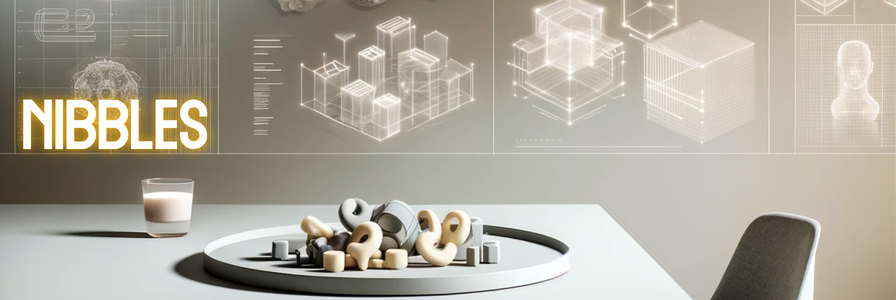Welcome back to AI Hungry, where the latest advancements and strategic moves in the artificial intelligence realm are always on the menu. Yahoo's recent acquisition of AI-driven news platform Artifact promises to reshape how users engage with content, hinting at a new era of personalized digital experiences. Meanwhile, Meta's proactive stance on AI-generated content, with its new 'Made with AI' labels, signals an industry-wide shift towards transparency and responsibility, especially in the context of the upcoming U.S. elections.
Our coverage dives into these developments, offering insights into how AI is not just changing the technology we use, but the way we interact with information and perceive reality. Stay informed on these pivotal updates by exploring the full articles in this edition.

Yahoo Acquires AI News Platform Artifact to Personalize User Experience
Yahoo has acquired Artifact, a news recommendation platform co-founded by Instagram's creators, aiming to revolutionize personalized news delivery. Artifact's AI technology is expected to offer Yahoo users tailored content suggestions, improved navigation, and a consistent experience across Yahoo services.
Despite Artifact's initial shutdown due to limited market growth and content restrictions, Yahoo sees value in its technology for enhancing user engagement. The integration of Artifact's smart systems into Yahoo News and potentially other services is anticipated to elevate Yahoo's position in the competitive online news landscape.

Meta Introduces 'Made with AI' Labels to Combat Deceptive Content Ahead of Elections
Meta, the parent company of Facebook and Instagram, is taking a new stance on content created or altered by artificial intelligence. Starting in May, the company will label AI-generated videos, images, and audio with a 'Made with AI' tag to inform users about the nature of the media they're viewing. This initiative broadens the scope of Meta's previous policy, which only addressed a narrow range of doctored videos. Additionally, Meta will immediately begin using 'high-risk' labels for altered media that could significantly mislead the public on important matters, regardless of the creation method.
The policy shift signifies Meta's move from removing certain manipulated posts to allowing them to remain online while providing context about their creation. This change is particularly timely, as the upcoming U.S. presidential election in November could see increased use of generative AI technologies in political campaigns. The update follows criticism from Meta's oversight board, which found the company's existing rules on manipulated media lacking and in need of expansion to include non-AI content and audio-only material.


🚀 Cohere Unveils Command R+, a Cutting-Edge Large Language Model for Businesses. Cohere launches Command R+, an advanced large language model with enhanced performance and multilingual support for enterprise applications. It surpasses competitors in key AI benchmarks and is now available on Microsoft Azure. (Link)
🔍 Archetype's AI Newton Transforms Sensor Data into Actionable Insights. Archetype's AI model, Newton, interprets complex sensor data and communicates it in simple language, promising to revolutionize monitoring and problem-solving in various industries, from logistics to healthcare. (Link)
🤖 YouTube CEO Warns Against Using Videos for AI Training Without Permission. YouTube CEO Neal Mohan stated that using YouTube videos to train AI models like OpenAI's Sora violates the platform's terms of service. This stance could impact Google's legal battles over its own AI training practices. (Link)
🚀 OpenAI Enhances API Fine-Tuning and Boosts Custom AI Models Program. OpenAI has upgraded its API for GPT-3.5 with new fine-tuning features and expanded its custom model program, showing significant performance improvements in various applications. (Link)
🎨 OpenAI Integrates Image Editing into ChatGPT for Enhanced DALL·E Creations. OpenAI has introduced an image editing feature to ChatGPT, enabling users to refine DALL·E-generated images directly within the interface. The update includes a paintbrush tool for precise edits and inspirational example prompts. (Link)
🔍 Google Contemplates Paywall for AI-Driven Search Features Amid Market Pressure. Google is considering a paywall for new AI search features while maintaining free traditional search. This change responds to the challenge from AI innovations like ChatGPT, which threaten ad revenue and have prompted Google to test AI-generated answers. (Link)



